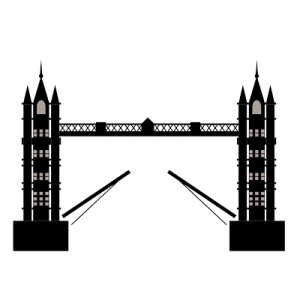Hello everyone. I am interested and seriously considering applying the LLM in Global Criminal Law in the University of Groningen. However I do have a couple of questions which you guys can help me clarify.
Firstly, I would like to know in terms of quality, how is the LLM? Are the professors and lectures high quality? For the ones that have already completed the courses or are in the process of completing them, Were your expactations fulfilled?
Secondly,in terms of job opportunities, is it possible and probable to get a job in an International Institution for example, or elsewhere with this LLM, taking into consideration that I am a foreign lawyer who got his degree in Guatemala.
Thank you very much in advance for your insight!
LLM Global Criminal Law Groningen
Posted Oct 07, 2020 22:56
Firstly, I would like to know in terms of quality, how is the LLM? Are the professors and lectures high quality? For the ones that have already completed the courses or are in the process of completing them, Were your expactations fulfilled?
Secondly,in terms of job opportunities, is it possible and probable to get a job in an International Institution for example, or elsewhere with this LLM, taking into consideration that I am a foreign lawyer who got his degree in Guatemala.
Thank you very much in advance for your insight!
Posted Oct 16, 2020 20:18
In terms of quality, there's nothing to worry about. Although it's not the 'best' law school in the Netherlands, it does have a strong reputation and very well developed internationally-oriented programs.
As to job opportunities, you should ask the school. Typically, an LLM isn't a great enabler of international mobility - an MBA would be much better along these lines - and 'international institutions' don't need *that* many international grads, unless they're looking for somebody with your specific focus. In that case, though, I'm not sure an LLM would add much value.
Posted Oct 19, 2020 13:41
Dear Oscar,my name is Patricia and I am currently a student of the LLM Global Criminal Law at the University of Groningen. Even though I just started the program, I think I can give you a pretty decent summary of how it is at the RUG, as I had also finished my LLB in International and European Law and my LLM in International Human Rights at the same university.
Both the LLMs I have taken part in are of high quality. The previous LLM (International Human Rights Law) expanded my knowledge remarkably, as the LLM programs at RUG are meant to provide you with a general and a very specific understanding of the particular field. The fact that I have stayed at the same university for more than 4 years definitely speaks for itself. Additionally, studies at the University of Groningen motivated me to proceed not only with the first LLM but also the second.
Generally speaking, the LLM in Global Criminal Law has so far fulfilled all my previous expectations (which were quite high, since I had an amazing experience with the other LLM). In the first block, there were three courses: Comparative Criminal Law, Criminal Procedure and Human Rights, and Organized and Financial Crime.
The course of Comparative Criminal Law provided me with an introduction to the field of criminal law of various national systems, predominantly the Dutch, German, and British. I especially loved this course as it really gave me a broad understanding of criminal law, together with a new perspective on law as such. The comparative methodology of this course teaches you how to analyze, compare and evaluate various legal national solutions to the same legal problem, which is particularly beneficial in future aspirations in law-making, while a broad understanding of various legal systems is offered as well (and thusa better understanding of your national criminal law is inevitable). During this course, you will meet various high-quality lecturers who are experts in their fields of law. Topics included: offense structure, theories of punishment, serious traffic offenses, sexualoffenses, criminal liability of corporations, homicide, etc. At the end of the course, you will be evaluated by taking an exam consisting of essay questions.
The course of Criminal Procedure and Human Rights was mostly concerned with the case-law of the ECtHR with regards to procedural rights, and it is taught by one of my absolute favorite lecturers of the University, who provides you with all the necessary knowledge but also motivates you to think critically and stay focused. Additionally, this course is normally accompanied by a guest lecturer from the ECtHR (unfortunately, due to today’s world situation this did not happen in the current year). Topics included: right to a fair trial, admissibility of evidence, witnesses and expert witnesses, fairness and expeditiousness, etc. At the end of the course, you will have to take a part in a group presentation (which consisted of a case-study this year), together with an individual essay on one of twoassigned topics.
Lastly, the course of Organized and Financial Crime provides you with an understanding of various cross-border crimes such as terrorism, drug trafficking, human trafficking, corruption, etc, from the international perspective - the UN suppression conventions in particular. This course will be done in the 2nd block, therefore, I am still about to finishit. I appreciate this course especially with regards to the provided knowledge concerning the practical application of the UN Conventions and the problems they pose.
As to my last point, I really appreciate how all the lecturers are really trying to make the best out of the current situation. Even though all of the classes are online as a result of the pandemic, all of the lecturers are really making sure that you comprehend the material and that all of your questions are answered (all the above-mentioned courses have also oneor two classes reserved for a Q&A session before the exams). Most of the professors are also trying to make the online lectures interactive by posting polls, forming small groups within the online education environment, and asking a lot of questions. Furthermore, all the lecturers are very helpful and approachable in person as well.
In sum, even though the current situation is not ideal, the lecturers are really making the best out of it, so that even if the whole year is going to be online, we will be able to graduate with the same quality of a degree as normally. Personally, never in the 4 years in Groningen did I regret enrolling and staying at the University of Groningen. I am sure, you will love every single part of the experience the University of Groningen and the city itself have to offer.
As to your second question, you can read about the career prospects here: https://www.rug.nl/rechten/education/international-programmes/llm/gcl/career-prospects,as I am not so familiar with the market myself yet. There is, however, a vastnumber of job opportunities suitable for a graduate of the LLM.
I hope this was helpful, and do not hesitate to contact me with further questions :)!
Related Law Schools
Other Related Content
University of Groningen Adds New LL.M. in Health & Technology Law
News Dec 12, 2023
Hot Discussions
-
Cambridge LL.M. Applicants 2024-2025
Oct 30, 2024 142,285 544 -
Oxford 2025-2026 BCL/MSCs/MJUR/MPHIL/MLF
Nov 15 04:43 AM 2,038 44 -
Harvard LLM 2025-2026
18 hours ago 1,668 7 -
Warwick or Birmingham
Nov 10, 2024 1,162 5 -
LL.M. Scholarship Rates?
Nov 09, 2024 2,502 5 -
Scholarship Negotiation Strategy (BCL v. NYU LLM Dean's Graduate Scholarship)
Nov 09, 2024 1,038 4 -
EU citizen barred in the US -- will an LLM from an EU school help me practice law somewhere in the EU?
Nov 15 12:58 AM 137 4 -
LLM in ADR
Oct 23, 2024 390 4




